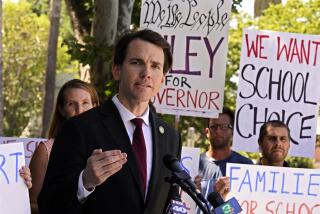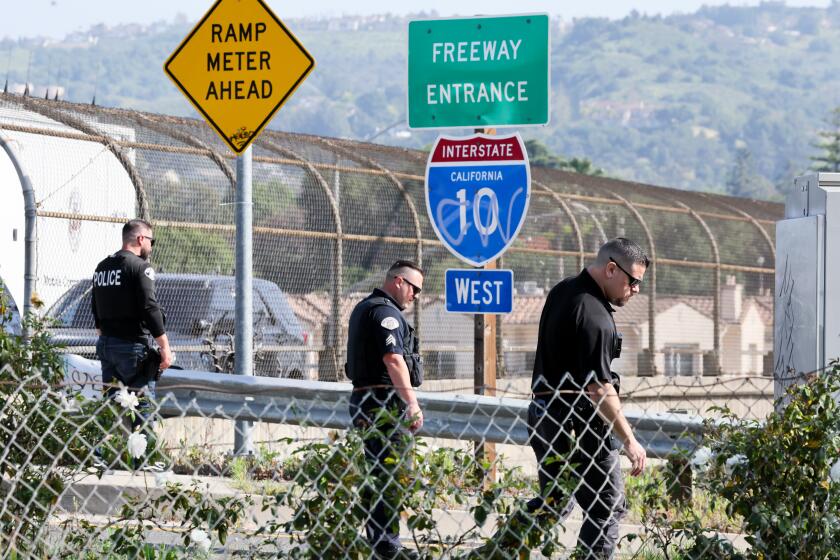Ethics probe sought over lawmaker’s high-speed rail opposition
WASHINGTON -- A government watchdog Tuesday sought a congressional investigation into California Rep. David Valadao’s efforts to halt the state’s high-speed rail project, saying the freshman failed to tell colleagues that the project could affect the property values of his family’s Central Valley farmland.
Citizens for Responsibility and Ethics in Washington asked the Office of Congressional Ethics to launch a probe into whether the Republican lawmaker “abused his position … to benefit his and his family’s financial interests.”
Valadao said in a statement that he has been “both consistent and clear on his opposition to high-speed rail since entering public life, regardless of the potential route.” He did not specifically address the watchdog group’s allegation.
The Hanford congressman recently won the approval of the House Appropriations Committee for a measure that the California High-Speed Rail Authority said would effectively kill the $68-billion project. The measure, included in a transportation spending bill, would require the federal Surface Transportation Board to consider the project in its entirety rather than in segments.
The spending bill could clear the Republican-controlled House this week but faces uncertain prospects in the Democratic-led Senate. The White House also objected to another GOP-sponsored provision of the bill that would prohibit federal funding next year for the California project.
The first phase of the system that would run 220-mph trains between Los Angeles and San Francisco is to be built between Madera and Fresno.
In seeking an investigation, Citizens for Responsibility and Ethics in Washington cited a Fresno Bee story that Valadao’s family dairy owns Kings County property that could be affected by either of the two rail routes under consideration.
Melanie Sloan, a former federal prosecutor who heads the watchdog group, said that Valadao’s “failing to inform his appropriations committee colleagues that he stood to benefit from the amendment is not merely inexcusable, it violates House rules.”
Valadao said he was acting “in the best interest of those who elected him. The proposed high-speed rail project will affect all Californians as it diverts billions of dollars away from essential services like public safety and education from communities who need it most,” he said.
A few weeks ago, Valadao trumpeted committee approval of his amendments, saying they “dealt a blow” to the “impractical” project.
The Office of Congressional Ethics does not, as a rule, comment on requests for investigations. The independent body can decide against opening a probe or spend up to 90 days conducting an investigation. It then decides whether to refer the matter to the House Ethics Committee for further investigation.
Dan Richard, chairman of the rail authority, said in an interview that although the authority is prepared to seek the approval of the federal Surface Transportation Board for segments of the rail project, the Valadao amendment is “very clearly constructed with one purpose: to stop the high-speed rail project in its entirety. Period.”
Richard said the authority, which has received about $3.3 billion in federal funding, had no plans to seek additional federal dollars for next year. But he said the funding prohibition would hurt the authority’s ability to raise private funds for the project.
“This is the wrong time to be saying, ‘We want to send a message to everybody that we don’t support high-speed rail,’” he said. “If that stayed in there, it would simply slow our efforts to expand the funding base to include the private sector.”
ALSO:
San Bernardino police investigate burning swastika on street
Some on San Diego City Council call for Filner ouster resolution
2-year-old girl in ‘good spirits’ after coyote attack at O.C. cemetery
More to Read
Start your day right
Sign up for Essential California for news, features and recommendations from the L.A. Times and beyond in your inbox six days a week.
You may occasionally receive promotional content from the Los Angeles Times.






